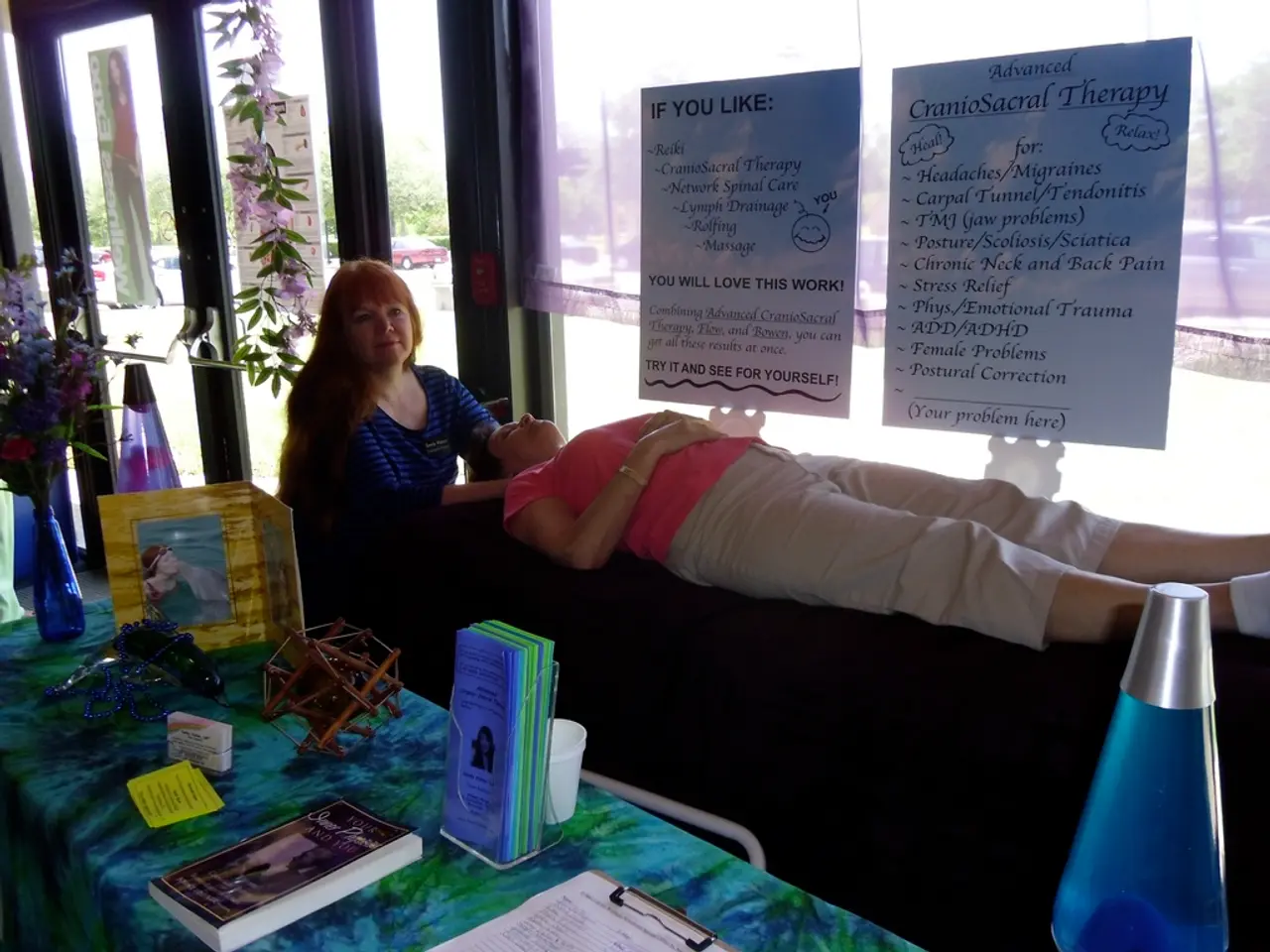Connection Between Depression and Substance Misuse Exploration
Substance use can mask an underlying mood disorder, which may not be obvious until after therapy for cessation. This underscores the importance of seeking help if you suspect you might be struggling with both conditions.
If you find yourself in need of immediate help, there are resources available. In the United States, you can call or text the 988 Suicide and Crisis Lifeline at 988, chat at 988Lifeline.org, or text "HOME" to the Crisis Textline at 741741. If you're not in the US, you can find a helpline in your country through Befrienders Worldwide.
Chronic use of central nervous system depressants can cause depressive symptoms, including problems concentrating and difficulty finding joy in typical activities. This is why it's crucial to be aware of the potential impact of substance use on mental health.
Fortunately, there are effective treatments available. Cognitive behavioral therapy (CBT) can be a helpful option to aid recovery and symptom management. Chronic substance use and withdrawal can lead to symptoms of depression or anxiety in most people, but with proper care, these symptoms can be managed.
Withdrawal from substances like alcohol and benzodiazepines can be life-threatening, so it's important to seek professional help when attempting to quit. During withdrawal, medications for SUD treatment have the best evidence in treating SUDs.
If you live with depression and substance use, many support groups and healthcare professionals can help you. Joining a 12-step program like Alcoholics Anonymous (AA) or a non-12-step group like SMART recovery can help support and connect you with others going through the same experience.
Depression is a mental health condition marked by low mood, feelings of hopelessness, loss of pleasure, and changes in eating and sleeping habits. Substance use disorder (SUD) is a chronic condition in which a person continues to use substances despite experiencing harmful consequences. Major depressive disorder (MDD), persistent depressive disorder (PDD), bipolar depression, and substance- or medication-induced depression are depressive disorders commonly associated with SUD.
Treating depression with SUD is challenging, but many people successfully manage both conditions. Treatment typically involves a combination of psychotherapy and medication, tailored to the individual's symptoms. Psychotherapy approaches may involve cognitive-behavioral therapy, psychoeducation, and supportive counseling, while medications such as antidepressants or atypical antipsychotics (e.g., Quetiapin) can be used adjunctively under medical supervision.
Genetics may play a significant role in both SUD and depression. Research suggests specific gene variants contribute to both disorders. Substance use can worsen existing symptoms in those with a history of mood disorders, and chronic use of central nervous system stimulants, like cocaine and amphetamines, may cause symptoms similar to bipolar disorder.
It's important to remember that you're not alone in this struggle. If you're battling depression and SUD, seeking help is the first step towards recovery. You can find help with starting your recovery journey through various resources such as Psych Central's Find a Therapist tool, American Psychological Association search tool, Association for Behavioral and Cognitive Therapies' search tool, American Psychiatric Association search tool, Substance Abuse and Mental Health Services Administration's search tool and treatment facility locator map.
Using alcohol, opioids, and sometimes cannabis have links to depression. SUDs are especially common in people with bipolar disorder, with 56% of people with bipolar disorder also having a lifetime SUD. Intoxication and withdrawal symptoms can mimic symptoms like mania and depression.
In conclusion, managing depression and SUD requires a combination of professional help, support from others, and personal commitment. With the right resources and support, it's possible to overcome these challenges and lead a fulfilling life.
Read also:
- Peptide YY (PYY): Exploring its Role in Appetite Suppression, Intestinal Health, and Cognitive Links
- Toddler Health: Rotavirus Signs, Origins, and Potential Complications
- Digestive issues and heart discomfort: Root causes and associated health conditions
- House Infernos: Deadly Hazards Surpassing the Flames





